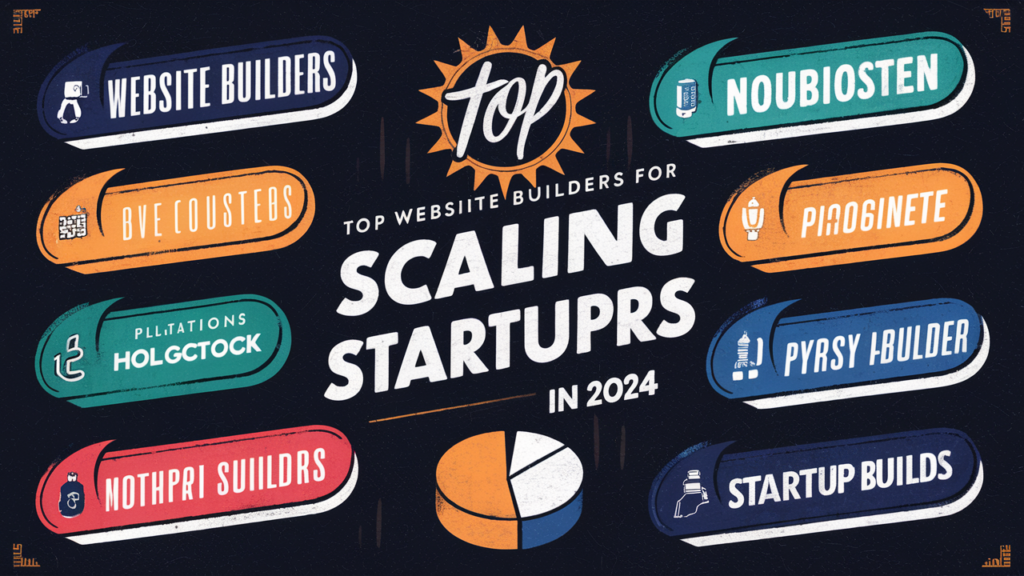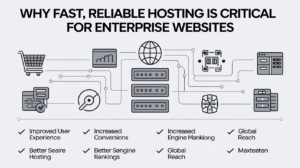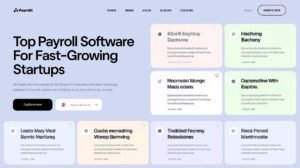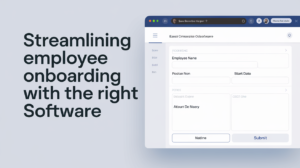In the fast-paced world of startups, having a robust online presence is indispensable. As a founder, choosing the right website builder can significantly impact your growth trajectory. In 2024, the landscape of website builders offers powerful tools specifically designed to accommodate the scaling needs of startups. This comprehensive guide will help you navigate the best Website Builders for Scaling Startups, ensuring your business scales efficiently and effectively. 🚀
Why Scaling Startups Need Specialized Website Builders
Before diving into the top website builders, it’s crucial to understand why scaling startups have unique requirements. Here are some elements to consider:
- Scalability: Startups grow rapidly, and your website must handle increased traffic, more pages, and additional functionalities.
- Ease of Use: Entrepreneurs juggle multiple roles. A user-friendly interface saves time and reduces dependency on external developers.
- Advanced Features: Integrated marketing tools, SEO optimizations, and e-commerce capabilities can drive growth.
With these in mind, let’s explore the best website builders tailored for scaling startups in 2024.
Top 5 Website Builders for Scaling Startups in 2024
1. Wix
Wix is a popular choice among startups due to its versatility and user-friendly interface. It’s perfect for entrepreneurs who need a quick, professional online presence without delving into code.
- Pros:
- Drag-and-Drop Functionality: Easily customize your site with no coding required.
- Extensive Template Library: Choose from hundreds of professional templates.
- App Market: Enhance functionality with numerous plug-ins and integrations.
- Cons:
- Limited Flexibility: While highly customizable, some advanced settings may be restricted.
- Pricing: Can be more expensive as you scale up with additional features.
2. Squarespace
Squarespace is renowned for its design-centric and aesthetically pleasing templates. It’s a top choice for startups in creative industries looking to showcase their portfolio.
- Pros:
- High-Quality Designs: Stand out with visually stunning templates.
- Built-in SEO Tools: Improve your search engine rankings effortlessly.
- e-Commerce Ready: Easily set up an online store.
- Cons:
- Learning Curve: Somewhat steeper than other site builders.
- Limited Customization: Less flexible compared to open-source platforms like WordPress.
3. WordPress.org
For startups requiring extensive customization and access to development resources, WordPress.org is unmatched. It powers over 40% of the web, demonstrating its robustness.
- Pros:
- Unlimited Customization: Access to thousands of themes and plugins.
- Robust Community Support: Huge library of resources and community help.
- SEO-friendly: Highly customizable for search engine optimization.
- Cons:
- Technical Expertise Required: Can be complex for beginners.
- Maintenance: Requires regular updates and maintenance.
4. Shopify
For startups focusing on e-commerce, Shopify is an excellent choice. It’s designed specifically for online stores and offers powerful features to support e-commerce growth.
- Pros:
- E-commerce Focus: Complete set of e-commerce tools.
- Mobile Optimization: Responsively designed for mobile shopping.
- 24/7 Support: Round-the-clock customer support.
- Cons:
- Cost: Higher price point with transaction fees.
- Customization Limitations: Limited to Shopify’s ecosystem.
5. Webflow
Webflow bridges the gap between ease of use and advanced customization. It’s ideal for startups that need design flexibility without diving deep into code.
- Pros:
- Design Flexibility: Offers complete design freedom.
- CMS Capabilities: Dynamic content management system.
- SEO-Optimized: Built with SEO in mind.
- Cons:
- Pricing: Can be expensive with added features.
- Learning Curve: Steeper than traditional drag-and-drop builders.
Key Features to Consider When Choosing a Website Builder 🔍
1. Scalability
Your website should grow as your startup scales. Ensure the platform can handle increased traffic, additional products or services, and more content without compromising performance.
2. Customizability
Every startup has unique needs. A highly customizable platform allows you to tailor your website to fit your brand vision and functional requirements.
3. SEO Capabilities
Organic traffic is a valuable asset for startups. Your website builder should come with built-in SEO tools or the ability to integrate powerful SEO plugins like custom URLs, meta descriptions, and header tags.
4. Mobile-Friendliness
With the surge in mobile internet usage, a mobile-responsive website is non-negotiable. Ensure your chosen website builder automatically optimizes your site for mobile devices.
5. E-Commerce Integration
For startups planning to sell products or services online, e-commerce capabilities are crucial. Look for builders that offer seamless e-commerce integration, easy product management, and secure payment gateways.
Tips for Leveraging Your Website Builder for Startup Growth
Once you’ve chosen the right website builder, here are some tips to maximize its potential:
1. Optimize for Speed ⚡
Website speed affects user experience and SEO. Use tools like Google PageSpeed Insights to ensure your site loads quickly. Opt for a website builder known for its performance optimization.
2. Invest in Quality Content 📈
High-quality content attracts and retains visitors. Regularly update your blog, product descriptions, and landing pages with valuable information that addresses your audience’s pain points.
3. Leverage Analytics 📊
Track your website’s performance using analytics tools. Platforms like Google Analytics can help you understand visitor behavior, measure conversion rates, and identify areas for improvement.
4. Use Social Proof 🏆
Display testimonials, case studies, and reviews on your website to build trust. Social proof can significantly influence potential customers’ purchasing decisions.
5. Implement Strong SEO Practices 🔍
Beyond built-in SEO tools, consider applying advanced strategies like keyword research, content marketing, and backlink building to improve your site’s search engine ranking.
Final Thoughts on Choosing Website Builders for Scaling Startups in 2024
The right website builder can be a game-changer for scaling startups. By considering factors such as scalability, customizability, SEO capabilities, and e-commerce functionality, you can make an informed choice that aligns with your growth objectives.
In 2024, website builders have evolved to offer robust, diverse solutions catering to the dynamic needs of startups. Platforms like Wix, Squarespace, WordPress.org, Shopify, and Webflow stand out as leaders, each with unique strengths tailored to various aspects of startup growth. Analyze your specific needs and choose a platform that best aligns with your business goals. 🌟









